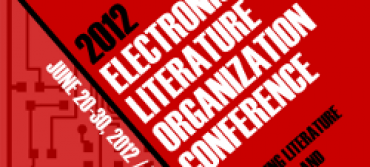
Electronic Literature Organization 2012
The conference, Electrifying Literature: Affordances and Constraints was held June 20-23 in Morgantown, West Virginia, home to WVU, a sponsor of the event.
Snapdragon version
This beta version of this piece was created using a custom marker tracking system and the user interacted with the piece by exploring the markers with a webcam, triggering small poetic voiceovers and videos.
